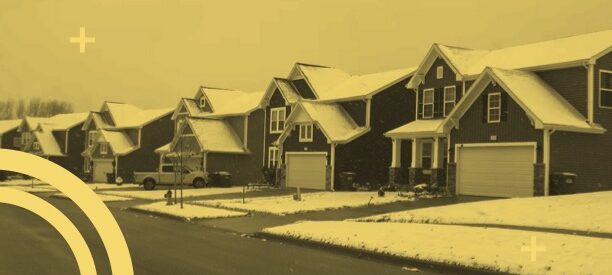With many of our partners, Just Solutions urges the Federal Housing Finance Agency (FHFA), which oversees Fannie Mae and Freddie Mac, to take immediate action requiring that the home mortgages they back for new construction conform to the updated 2021 International Energy Conservation Code (IECC) codes. Together, we have submitted a letter to the Biden Administration requesting that the President direct such action before leaving office.
The government-sponsored enterprises (GSEs) Fannie Mae and Freddie Mac support about 70% of mortgages for new homes in the U.S. Requiring IECC 2021 standards for mortgages backed by the GSEs would bring a significant majority of new residential construction in the U.S. into line with higher energy efficiency standards. It would prevent nearly 200 million metric tons in CO2 emissions and create an estimated 590,000 jobs. Low-income and disadvantaged communities in particular stand to gain from the energy cost savings and health and safety benefits that come with improved energy efficiency, and it is far cheaper to build buildings to sound standards in the first place than to retrofit them afterwards.
Just Solutions has produced a trio of briefs examining this opportunity from several perspectives. “Energy Efficient Mortgages: A Unique Opportunity for Environmental Justice” by Senior Policy Analyst Sylvia Chi explains the role of GSEs in mortgage markets and green financing and introduces the federal Greenhouse Gas Reduction Fund (GGRF). This brief highlights planned green mortgage products supported by the GGRF and discusses how FHFA’s adoption of building energy code requirements for mortgages would complement green lending supported by the GGRF, with a particular focus on benefits for low-income and disadvantaged communities.
A second brief, “Building Efficiency Standards Are Foundational For Broad-Based Community Resilience,” by Senior Fellow Arjun Makhijani describes the necessity of building efficiency standards for increasing the passive survivability of homes – that is, the capacity of structures to maintain habitable temperatures during heat or cold waves coincident with long electricity outages. Requiring that all new residential construction with mortgages backed by Fannie Mae and Freddie Mac conform to the IECC 2021 energy codes would achieve such resilience improvement with significantly net positive benefits over costs.
Energy-efficiency standards for buildings do more than enhance climate resilience. They also address equity issues by reducing energy burdens for low-income and marginalized communities, providing a pathway to safer, more equitable housing. This brief also makes the case that passive survivability should be the minimum baseline for resilience. Other resilience investments include providing uninterrupted power during long outages to community-defined critical loads like hospitals, grocery stores, and emergency response facilities. Updating energy-efficiency codes improves the value of such resilience investments. It should be part of a holistic approach to resilience, where its various aspects, including distributed zero-emission resources, are coordinated with one another and with overall grid decarbonization.
“Increasing Energy Efficiency, Lowering Costs, and Resolving Housing Challenges for Lower-Income People in Michigan” by Senior Researcher Jennifer Moon takes a state-specific approach, examining a proposal to take state action to similarly upgrade Michigan’s residential building energy codes as the state simultaneously embarks upon a campaign to address housing supply challenges. It considers the costs and benefits of adopting the updated energy codes, particularly for lower-income households, and refutes arguments from opponents that such action – either by the state or by the FHFA – would negatively affect prospective homeowners. It makes the case that, given the urgent need to increase housing supply in Michigan, now is the time to ensure that newly-built homes maximize the health, comfort, and safety of residents while minimizing home energy costs.
Together, these briefs demonstrate the opportunities immediately available to increase energy-efficiency within a significant proportion of new residential construction across the country.
Join Just Solutions for a webinar, “Modernizing Energy Codes for a Resilient Future,” at 12:00 p.m. PST/3:00 p.m. EST on Tuesday, January 28 to discuss these three briefs.
Register here for this event.
